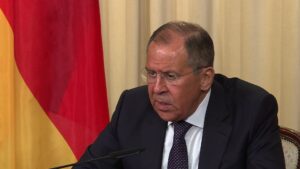Ukrainians with chronic illnesses face challenges to access healthcare: WHO
GENEVA – Since Russia launched its war in Ukraine two months ago, the World Health Organization (WHO) has verified 162 attacks on healthcare facilities. As a result, patients with chronic conditions face significant barriers to care.
According to preliminary findings from the WHO survey on national health needs, one in every three (30%) of the 1,000 homes polled has at least one individual with a chronic disease who is having difficulty accessing care.
The survey showed that two out of five households (39%) have at least one member who suffers from a chronic illness, such as cardiovascular disease, diabetes, or cancer.
Less than a third (30%) of respondents sought health-care services recently, with two out of five (39%) citing the security situation as the main reason for difficulties in accessing healthcare, while 27% reporting no health-care services at all in their areas.
The majority of households (70%) surveyed are currently sheltering in their own homes, over one in 10 (11%) are staying with friends and family in relatively safer areas, 8% are on the move within Ukraine, and 3% are in a shelter or camp for internally displaced people.
According to the UN, at least 7.1 million people have been displaced within Ukraine, while more than 5 million have fled the country.
Since February 24, when Russia launched its “special military operation,” the WHO said its office in Ukraine, led by Jarno Habicht, has reached approximately 7.5 million people with life-saving supplies, equipment, and medicines in collaboration with health authorities.
The health agency warned that the situation is “growing more dire by the day,” and Ukraine’s health authorities face enormous challenges.
The risk of infectious diseases, particularly water-borne infections, is significant, and routine immunization, especially COVID-19 vaccination, has been greatly reduced as a result of the war.








